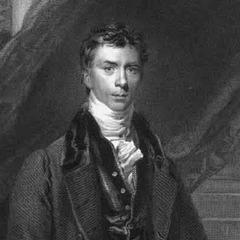Francis Bacon Quotes - Page 17
That which above all other yields the sweetest smell in the air is the violet.
Francis Bacon (1778). “The Works of Francis Bacon, Baron of Verulam, Viscount St. Alban, and Lord High Chancellor of England: In Five Volumes”, p.509
1625 Essays, no.27,'Of Friendship'.
Essays "Of Marriage and the Single Life" (1625) See Lucan 3
Nature is often hidden, sometimes overcome, seldom extinguished.
'Essays' (1625) 'Of Nature in Men'
"Essays: Or Counsels, Civil and Moral".
Francis Bacon (1765). “The works of Francis Bacon, Baron of Verulam, Viscount St. Alban, and Lord High Chancellor of England, in five volumes”, p.125
Francis Bacon, Robert Leslie Ellis, William Rawley (1861). “The philosophical works of Francis Bacon, with prefaces and notes by the late Robert Leslie Ellis, together with English translations of the principal Latin pieces”, p.372
Francis Bacon, William Rawley (1858). “The Works of Francis Bacon: Literary and professional works”, p.498
Francis Bacon (1852). “The essays or counsels civil and moral and wisdom of the Ancients by Francis (Bacon) Lord Verulam: Edited by B[asil] Montagu”, p.2
Francis Bacon (2012). “The Great Instauration”, p.69, Simon and Schuster
'Essays' (1625) 'Of Cunning'
'Essays' (1625) 'Of Death'
Francis Bacon, Richard Whately (1867). “Lord Bacon's Essays: With a Sketch of His Life and Character, Reviews of His Philosophical Writings, Critical Estimates of His Essays, Analysis, Notes, and Queries for Students, and Select Portions of the ʻAnnotationsʼ of Archbishop Whately”, p.296
Francis Bacon, John Blackbourne, George Fabyan Collection (Library of Congress) (1730). “Francisci Baconi Baronis de Verulamio ... Opera Omnia Quatuor Voluminibus Comprehensa: Containing, I. His Natural history. II. Physiological and medical remains. III. The new Atlantis. IV. His Apothegms. V. Essays. VI. Colours of good and evil. VII. History of the reign of Henry VII. VIII. History of Henry VIII. IX. Beginning of the history of Great Britain. X. Of a war with Spain. XI. Of an holy war. XII. The history of the office of alienations. XIII. Advice to the Duke of Buckingham, Sir Geor”, p.310
For what a man would like to be true, that he more readily believes.
'Novum Organum' (1620) bk. 1, Aphorism 49 (translated by J. Spedding).
Francis Bacon (1753). “The Works...”, p.37
Francis Bacon (1765). “The works of Francis Bacon, Baron of Verulam, Viscount St. Alban, and Lord High Chancellor of England, in five volumes”, p.526




